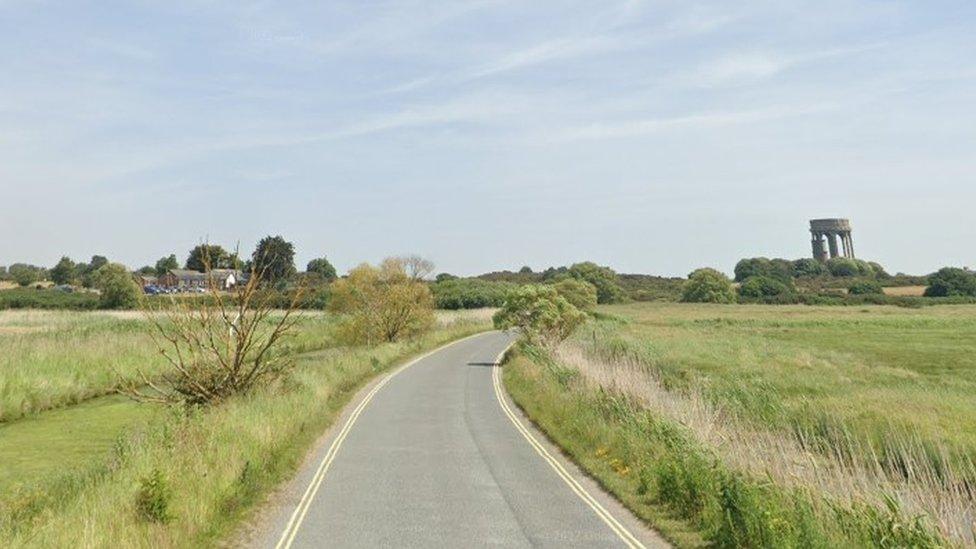County Down man trampled by cows 'lucky to be alive'
- Published
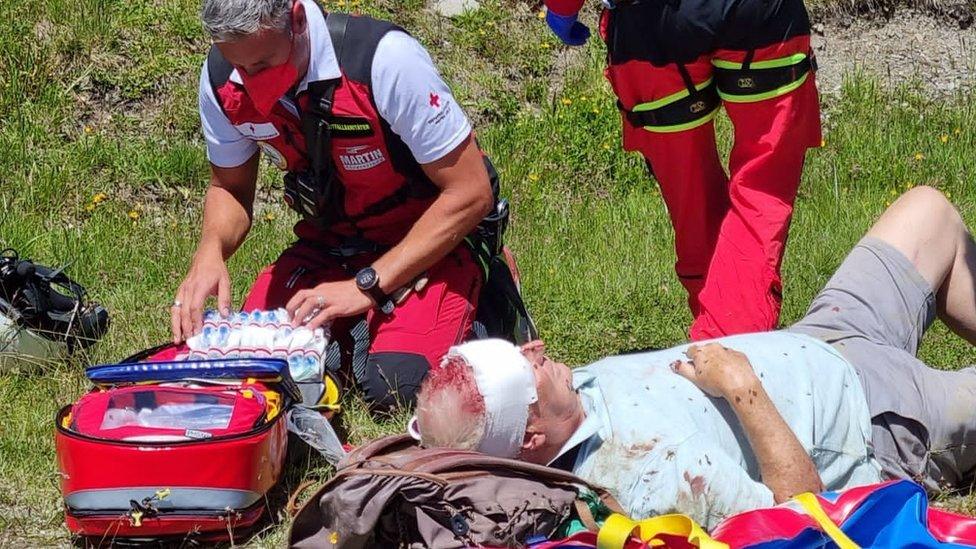
A medical helicopter was required to airlift Alan to Zurich for hospital treatment
A County Down man whose ribcage was left like a "bag of crushed crisps" after being trampled by a herd of cows in the Swiss Alps has said he is lucky to be alive and wants to warn others.
Alan Couser was leading a walking tour in July 2022 when he said a cow at the back of the herd galloped at "racehorse speed" towards him, knocking him over.
Within seconds the rest of the herd were on top of him, he said.
Mr Couser was trampled and kicked and rolled around by the cows' noses.
Speaking to BBC News NI, he said their hooves were heavy and pointed which, according to surgeons, left his chest like a bag of "crushed crisps".
Mr Couser suffered 21 broken ribs, two damaged vertebrae, a cracked cheek bone, a leg broken in multiple places and a dislocated ankle.
Alan Couser had to undergo surgery after being trampled by cattle
A medical helicopter airlifted him to the Tauern Clinic in Zell, Zurich, where he spent days in intensive care.
"My leg and ankle had to be fixed [into place] at the side of the mountain so I was given morphine - the paramedics were incredible," he said.
His breathing quickly deteriorated after his lungs collapsed.
'Blood everywhere'
His wife Anne was close by and reached her husband within minutes of the incident.
"He was cut from head to foot, there was blood and flies everywhere," she said.
Local people told the couple that the cows had stampeded down a hill after breaking free from a field.
Anne had been standing with the walking group around a bend a few hundred yards away, so did not see the incident.
Alan and Ann, who own a travel company, have spent most of their married life organising and leading travel tours.
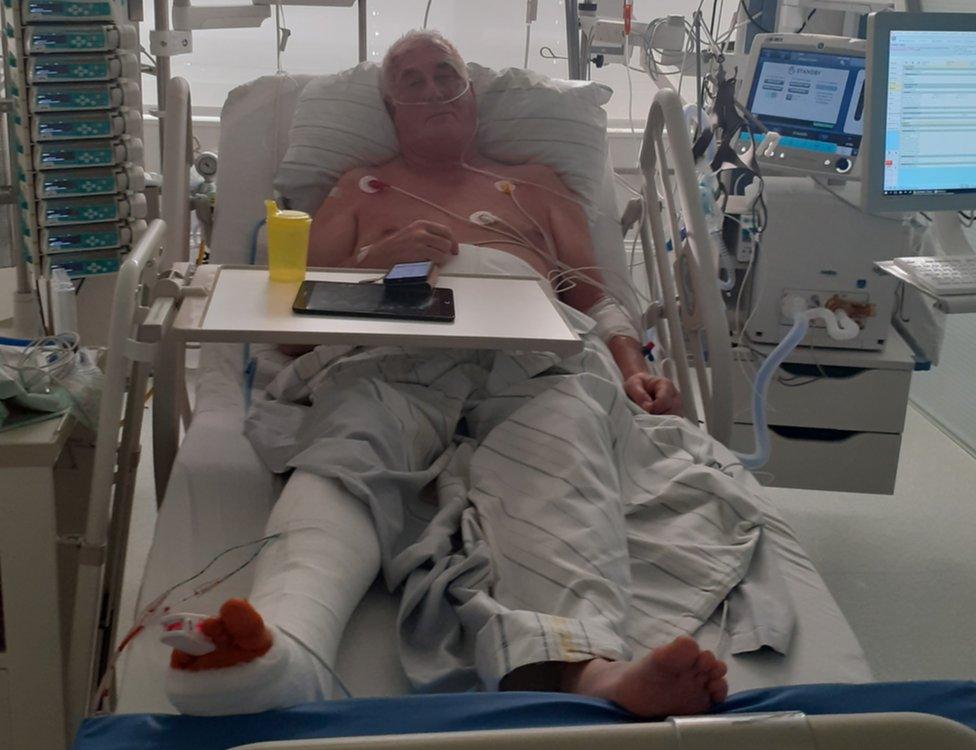
Alan Couser was leading a walking tour before he was injured
Speaking from their home outside Bangor, Anne described the "thunder of the cows' feet" as they stampeded past after attacking her husband.
Within minutes locals said that a helicopter was on its way and that, according to Anne, brought instant relief.
"I knew the arrival of the helicopter and the professionalism of the medics that he would be ok, there was no room for me in the helicopter and my last words to him were: 'I will see you in the hospital.'"
Wired up
Mr Couser wants to warn people of the importance of having travel insurance with them while on holiday, and that cows can be dangerous.
"Get your EHIC or your GHIC (global). They are so useful," he said.
"When Ann my wife came to the hospital with the card, they photocopied it, give it back to me, and after that I had no worries.
"The hospital looked after everything."
Anne Couser said having travel insurance helped make things a lot easier.
"I remember seeing him for the first time and he had just come from surgery," she recalled.
"All the wires, all the machines he was wired up to, his leg was in plaster and I thought this is just the start of a very long journey.
"One day he would be upbeat, then another day there would be a chest drain in and he'd be depressed and there would be tears.
"And I'd think is there going to be a new normal?"
After surgery and many days in intensive care, Alan flew home and was admitted to the Ulster Hospital in Dundonald, where his treatment continued.

The picturesque Swiss Alps are a popular destination for tourists
Incidents involving cows and humans, while rare, are not unheard of.
From January 2013 to December 2022, 13 males and two females have died on farms in Northern Ireland in incidents involving animals.
Six of the incidents involved bulls and the rest involved either newly calved cows or cattle.
Local vet Phil Walsh said cows can cause severe injury to humans due to their size, without intending to.
"These animals are going to be up to 700 kilos and they are trying to ward you off, especially if their calves are with them," he said.
"Cattle are herd animals they are generally inquisitive and interested in people - things they feel threatened by including sensing that people nearby feel threatened by them - it's probably a protective thing."
Meanwhile, the Cousers are preparing for their next trip, where they will be leading another walking group in Europe.
"Alan has been remarkable and has bounced back, he wasn't going to let it beat him," Anne said.
Related topics
- Published11 August 2023
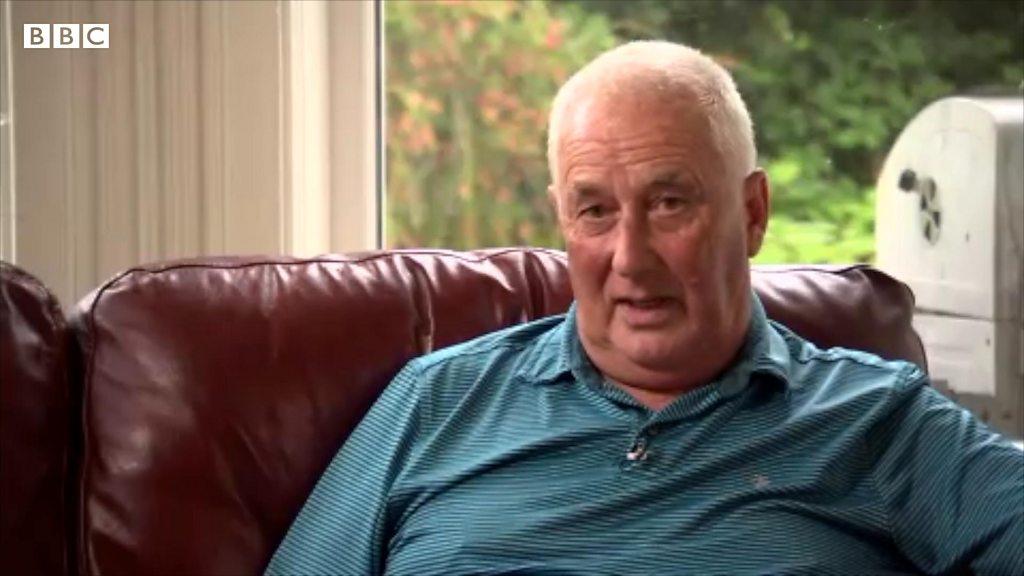
- Published16 January 2023
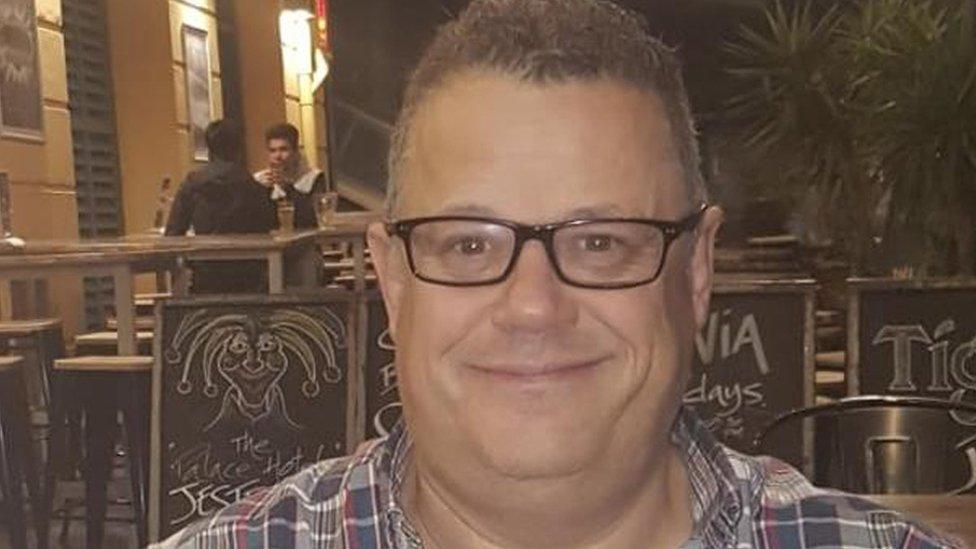
- Published17 July 2023
